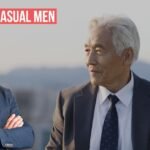China is reportedly investigating its Defense Minister, Dong Jun, for alleged involvement in corruption. First reported by The Financial Times, this information suggests Dong is the latest official targeted in an ongoing anti-corruption campaign within the People’s Liberation Army (PLA).
While the Ministry of Foreign Affairs spokesperson, Mao Ning, dismissed the claim as “chasing shadows” during a recent briefing, this report reflects a broader trend of addressing corruption in China’s military leadership.
The inquiry into Dong Jun is part of a sweeping anti-corruption purge in the PLA since 2022. According to reports, at least nine PLA generals and several senior executives within the defense industry have been removed from key positions or investigated for corruption.
Dong follows two prior defense ministers, Li Shangfu and Wei Fenghe, who were removed and expelled from the Communist Party for offenses that included bribery and other ethical breaches.
Li Shangfu, Dong’s predecessor, was removed just seven months into his tenure. Reports from state media state that Li was expelled for taking bribes and misusing his position for personal financial gain. His removal marked the second consecutive defense minister implicated in corruption, casting questions about the vetting processes for such high-profile positions.
Similarly, Wei Fenghe was charged with offenses along the same lines, with the Communist Party denouncing the damage caused by the actions of these senior military officials.
In his current role as defense minister, Dong Jun oversees critical aspects of China’s military diplomacy. His leadership is integral to fostering military relations with other nations, including a recent effort to improve ties with the United States, demonstrated by theater-level commander talks between the two countries this past September. Dong’s investigation, if confirmed, could lead to further instability within China’s already fragile military leadership.
This marks a continuation of systemic issues within the PLA, which has historically grappled with corruption due to overlapping business and military interests.
Assistant Professor Dylan Loh of Nanyang Technological University highlights that the Communist Party’s failure to curb corruption effectively, even after significant purges, is surprising and damaging.
Additionally, these investigations—while framed as efforts to preserve the military’s image and integrity—also risk undercutting the party’s credibility. Frequent scandals can strain morale within the PLA and undermine the global perception of China’s military leadership.
President Xi Jinping’s long-standing focus on eradicating corruption within civilian and military sectors aims to strengthen party control and improve governance. However, the repeated ousting of defense ministers raises skepticism about the party’s ability to appoint individuals capable of maintaining ethical standards and managing their roles effectively.
For foreign policy observers, these investigations reveal much about the challenges faced by the CCP. The frequent turnover in defense leadership could disrupt China’s long-term strategic military objectives and hinder its global military diplomacy initiatives.
Addressing corruption in an institution as central as the PLA is critical for ensuring China’s national security and economic continuity. However, frequent high-profile investigations highlight vulnerabilities in internal oversight mechanisms, which could have broader implications for regional stability and governance.
Furthermore, this aligns with a broader trend of increasing scrutiny on China’s military activities by international observers. Countries engaged in diplomatic relations with China might reconsider the reliability of current and future military partnerships, particularly as frequent leadership changes call into question the continuity of policies and commitments.
Final Thoughts
If confirmed, the investigation of Defense Minister Dong Jun underscores ongoing challenges within China’s military leadership amid sweeping anti-corruption campaigns. Repeated scandals involving senior officials raise essential questions about the efficacy of these campaigns, their long-term impact on institutional reforms, and their potential effects on China’s standing in the global arena.
Understanding this investigation is vital for global policymakers, military analysts, and industry stakeholders in assessing the implications of these developments for international security and future collaborations. Observers carefully tracking the intersection of governance and corruption in China will likely remain focused on this area.
Source: Aljazeera












